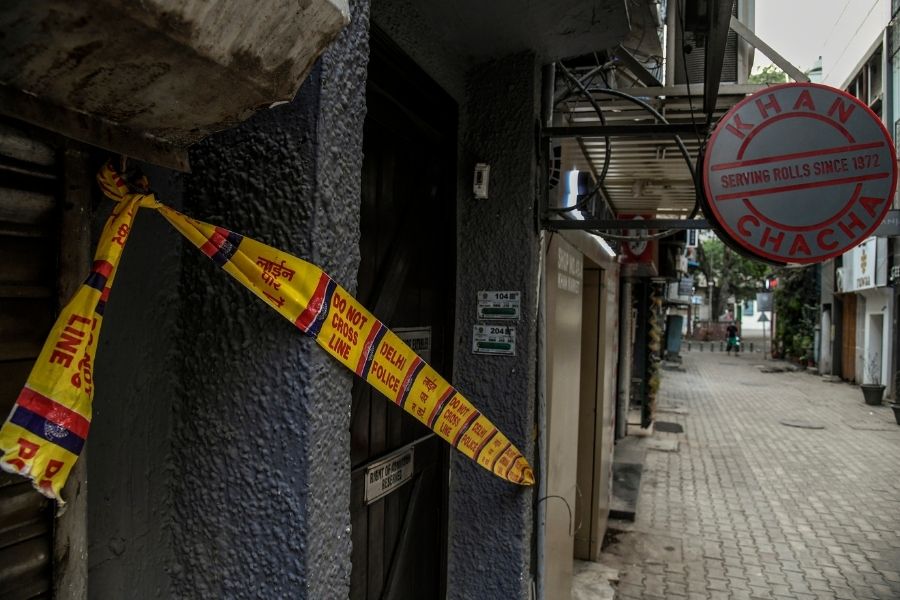
A desperate India falls prey to Covid-19 scammers
Medicine, oxygen and other supplies are brokered online or in hushed phone calls and in many cases, the sellers prey on the desperation and grief of families

Police tape hangs at a New Delhi restaurant on May 8, 2021, where officials said oxygen concentrators, which are used to treat Covid-19 patients, were being stored. Businessmen associated with the restaurants were accused of hoarding them and selling them at steep prices. (Atul Loke/The New York Times)
NEW DELHI — Within the world’s worst coronavirus outbreak, few treasures are more coveted than an empty oxygen canister. India’s hospitals desperately need the metal cylinders to store and transport the lifesaving gas as patients across the country gasp for breath.
So a local charity reacted with outrage when one supplier more than doubled the price, to nearly $200 each. The charity called the police, who discovered what could be one of the most brazen, dangerous scams in a country awash with coronavirus-related fraud and black-market profiteering.
The police say the supplier — a business called Varsha Engineering, essentially a scrapyard — had been repainting fire extinguishers and selling them as oxygen canisters. The consequences could be deadly: The less-sturdy fire extinguishers might explode if filled with high-pressure oxygen.
“This guy should be charged with homicide,” said Mukesh Khanna, a volunteer at the charity. “He was playing with lives.” (The owner, now in jail, couldn’t be reached for comment.)
©2019 New York Times News Service




